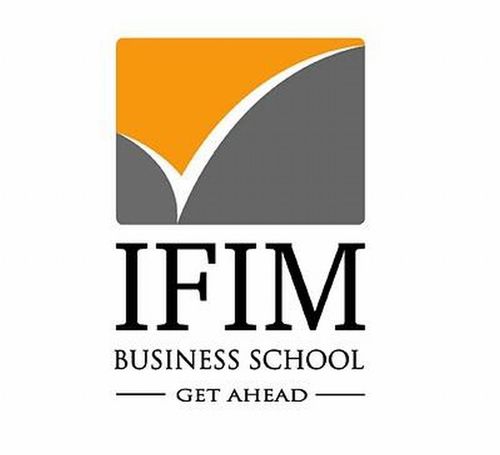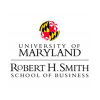Date:
25th July 2020
Description:
This is the 7th Edition of Confluence 2020 organized by IFIM Business School, Bengaluru, India.
Theme: How Higher Education Institutions can reboot the Economy?
The Covid-19 pandemic has disrupted the social, economic, geopolitical, business and learning environments. It has thrown new challenges to the well-established norms of earning a livelihood, interacting with friends and family, interacting at the workplace, and learning at schools and colleges. Countries, States, Business establishments and institutions of learning have been forced to adopt new ways of working, learning and delivering their respective obligations. This has dramatically impacted the normal. Supply chains across commodities, products and human resources are decimated and need to be re-invented. The Coronavirus has thrown a challenge to humankind and we must once prove our resilience.
The future of every economy is determined by the quality of the new generation that it produces. This new generation has been conventionally trained and educated by a learning ecosystem consisting of pre-schools, schools, and higher education institutes. The new generation is further mentored, coached, and developed by the industry and society to don the role of business and social leaders who eventually then drive the future of the economy.
The conventional education system has been hit hard by this pandemic. Academia has been rattled and is desperately seeking quick and easy solutions.
It is time for the Organizations, Academic body, Social Influencers, and Industry leaders to pause and apply their minds to answer the following emerging questions.
- Is this the end of classroom teaching and online learning pave way for resurrecting the economy and then sustain it thereon?
- The traditional and established experiential learning pedagogies such as internships and immersions are being threatened. Do we need to reinvent them?
- Placement cycles which were the feeders of trained human resources are losing steam as the credibility of offers is at stake and the traditional campus interviews are becoming inconvenient. Do we need to find a new model?
- Will the legacy formulae of ROI cost of education/Placement Packages continue to be the normal?
- Are such lockdowns & social distancing here to stay, if yes do we need to train and educate our students differently?
These questions need to be thought through, debated intensely, and answered thoughtfully to rebuild a learning ecosystem which will help address the new normal and reboot the economy which is now at a standstill.
Audience:
- Chief Executive Officers /Chief Human Resource
- Leader Campus Recruitment & Campus Recruiters
- University Relations Team
- Talent Acquisition & HR Professionals
- Career Services Professional
- Founders, Co-founder, and Entrepreneurs
- Director, Head & Manager- Placement Officers/Chief Managers
- Chancellors & Vice Chancellors
- Directors & Principals
- Deans & Senior Faculty Members
- Researchers
Agenda:
| Time | Agenda |
|---|---|
| 09:50 AM – 10:00 AM (10 Minutes) | Inauguration Ceremony |
| 10:00 AM – 10:10 AM (10 Minutes) | Welcome Address Dr. Ashwini Kumar Sharma Pro Chancellor at Vijaybhoomi University Ex-Director General – National Institute of Electronics & Information Technology (NIELIT) |
| 10:10 AM – 10:40 AM (30 Minute) | Inaugural Address by the Chief Guest Dr Anil Sahasrabudhe, Chairman AICTE |
| 10:40 AM – 10:55 AM (15 Minutes) | Setting the Context Sanjay Padode Chairman, IFIM Business School (CDE Society) President- Vijaybhoomi University |
| 10:55 AM – 11:05 AM (10 Minutes) | Inauguration Vote of Thanks Jayant Shah Confluence Chair Executive Director – Academy of Indian Marketing, CEO – AIM Parasuraman Centre for Service Excellence |
| 11:05 AM – 12:05 Noon (60 Minutes) | Panel 1 – Changing teaching and learning norms Speakers Dr. Avantika Tomar, Global Solution Lead, Mercer, UK Alok Mishra, Director, Niti Aayog, Govt of India Prof. Manoj K Tiwari, Director, National Institute of Industrial Engineering (NITIE) Vikas Gupta, Managing Director, Wiley India Vikram Chaudhary, Asst. Editor, The Financial Express Dr. Navneet Sharma – Dean, Vijaybhoomi University (Moderator) |
| 12:05 Noon – 12:35 PM (30 Minutes) | Networking Breakout |Q&A |
| 12:35 PM – 1:35 PM (60 Minutes) | Panel Discussion II – Impact on Early Talent and Campus Opportunities Speakers Kisha Gupta, Head of Global Academic Relations at Infosys Amit Sachdev, CHRO, Tata Insights and Quants Shruthi Alva, HR Director, Automation Anywhere Priyanka Srivastava, Editor, Education Times – Times of India Prof. Rakesh Mediratta, Dean, IFIM Business School (Moderator) |
| 1:35 PM – 2:05 PM (30 Minutes) | Networking Breakout |Q&A |
| 2:05 PM – 3:05 PM (60 Minutes) | Panel Discussion III: The ROI Factor: Graduate Fresh Talent & Employer Speakers Sushil Joshi, CHRO Adani Group Ramendra Verma, Partner & Head, KPMG INDIA-EGYPT JV Somasekhar Mulugu, Associate Editor & Chief of Bureau, The Hindu Business Line Mithun Appaiah, CEO & Executive Director Innovative Foods (Sumeru) Dr. Asit Barma, Professor & Chairperson – Marketing, IFIM B School (Moderator) |
| 3:05 PM – 3:35 PM (30 Minutes) | Networking Breakout |Q&A |
| 3:35 PM – 4:00 PM (25 Minutes) | Way forward Dr. Atish Chattopadhyay Director IFIM Business School Vice Chancellor – Vijaybhoomi University |
| 4:00 PM – 4:25 PM (25 Minutes) | Valedictory Dr. M.P. Poonia , Vice Chairman – AICTE |
| 4:25 PM – 4:30 PM (05 Minutes) | Vote of Thanks Ms. Surekha Shetty Director – Student Services IFIM Business School |



































